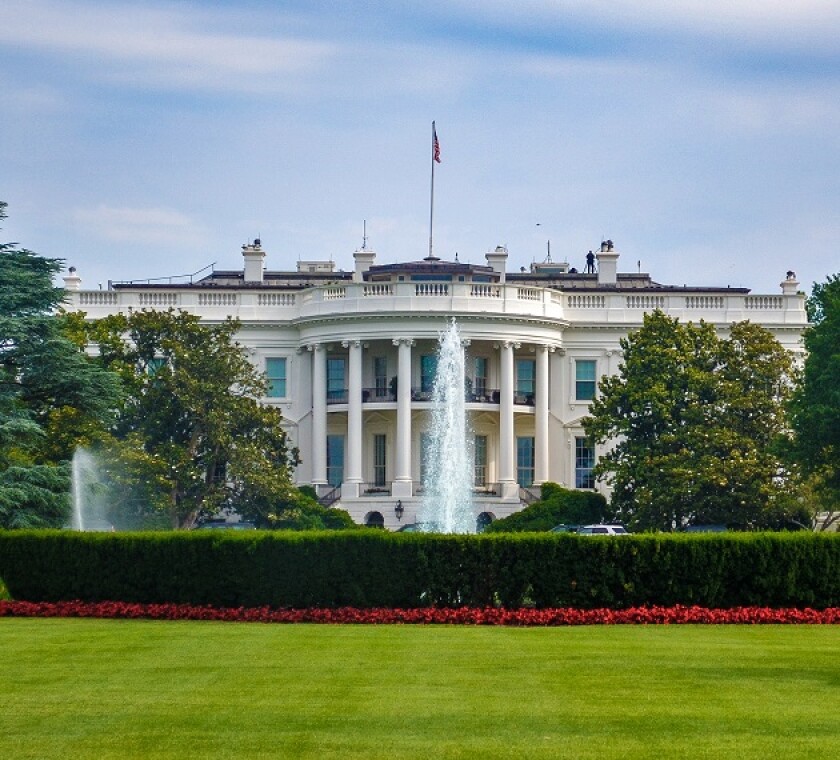The Biden administration has made a point of putting climate change at the centre of its policy agenda. However, the rising cost of living – and especially fuel costs – may force the US government to suspend the gas tax to alleviate the burden on households.
The US is facing rising oil prices, and these are being passed down to customers at gas stations. The so-called gas tax imposes a levy of 18.4 cents per gallon of petrol, while average petrol prices have risen to $3.50 per gallon according to the American Automobile Association (AAA).
“Every tool is on the table to reduce prices,” said Emilie Simons, White House assistant press secretary. “The president already announced a historic release of 50 million barrels from the strategic petroleum reserve, and all options are on the table looking ahead.”
Oil prices collapsed to record lows in 2020, but there was a surge in petrol use in 2021. The West Texas Intermediate saw prices rise above $95 per barrel this week, before dropping back to $91.50.
US oil production is still below pre-pandemic levels despite high demand. In addition, production in the 13 OPEC member countries, which account for over 80% of the world’s proven oil reserves, is still low. So, the world is facing much higher energy costs due to a lack of supply, whether it be of natural gas or crude oil.
The results may force governments to reconsider tax measures designed to drive up fuel costs in a bid to cut carbon emissions. This could be a serious setback for environmental tax advocates.
Global Tax 50: UK Supreme Court ruling on Uber
The ride-hailing company Uber suffered a blow in February 2021, when the UK Supreme Court ruled that its drivers are not independent contractors, leaving Uber liable for increased worker rights and VAT.
In a case that has significant implications for the gig economy, Uber lost a high-profile UK Supreme Court ruling in February 2021 over the classification of its drivers. The ruling has implications for the company’s responsibilities towards its drivers, as well as its tax liability.
As government authorities begin work to bring the gig economy under regulation, the Uber ruling sets a precedent that could affect a whole swathe of the economy – not just in the UK, but worldwide.
The Supreme Court judgment, reached on February 19 2021, came as the result of a dispute between Uber, which wanted to avoid being classified as a formal employer, and its drivers, who were fighting for increased workplace benefits.
Uber argued that it operates as a facilitator of rides rather than a taxi company. The company said that it acts as a mediator between drivers and customers, while drivers act as independent contractors. This allowed Uber to avoid the obligations faced by most employers, including paying employment taxes and national insurance contributions (NICs), and providing a workplace pension.
However, the claimants, Yaseen Aslam and James Farrar, who led a five-year campaign against Uber, contented that drivers for Uber are ‘workers’ for the company, rather than independent entities who contract directly with their customers. This would mean drivers are eligible for workers’ rights including holiday pay and minimum wage.
The Supreme Court ruling in February dismissed Uber’s appeal against an earlier judgment, and supported Aslam and Farrar’s case.
Global Tax 50: John Peterson
John Peterson, head of the OECD’s aggressive tax planning unit, is responsible for pillar two’s global minimum tax framework. About 137 countries are drafting minimum taxes based on his design.
The G20/OECD’s digital tax agenda remains the hottest topic in tax policymaking in 2022 as several countries prepare draft legislation for a 15% global minimum corporate tax rate by 2023. The minimum rate will set a floor on international tax competition and is intended to stop multinational enterprises (MNEs) shifting profit to lower tax jurisdictions.
“The Panama Papers and the Paradise Papers have focused the public’s attention on the global reach of the tax planning industry, and the leaks make it more obvious that tax avoidance is a global problem that requires co-ordinated rules and collaborative action,” says Peterson, who started working on the design of the global anti-base erosion (GloBE) rules for pillar two with his team in 2019.
The GloBE rules that Peterson co-designed are the basis of a global minimum tax framework that will be enacted in 137 countries so that MNEs with a turnover of more than €750 million ($820 million) pay a 15% effective tax rate regardless of where they are headquartered.
“We are trying to design these rules so they are future-proof [as the digital economy expands],” says Peterson. The set of GloBE rules include the income inclusion rule (IIR), undertaxed payment rule (UTPR), and switch-over rule (SOR).
Peterson’s team at the OECD co-released a model framework for the rules in December 2021 to pave a way for countries to draft legislation for pillar two in 2022. However, several corporate leaders are calling for greater simplicity as the GloBE rules may be difficult to standardise across countries.
Next week in ITR
ITR has reviewed the impact of pillar two on global tax reform. The OECD blueprint for a global minimum corporate tax rate will become more than a proposal this year, with many governments reforming their tax systems.
ITR will be running more exclusive interviews with politicians on international tax reform. The first is an interview with Dutch MEP Paul Tang on tax justice, and the second is an interview with British MP Margaret Hodge on the dangers of illicit financial flows.
Readers can expect these stories and plenty more next week. Don’t miss out on the key developments. Sign up for a free trial to ITR.













